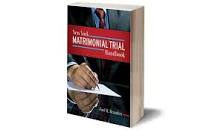
Admissibility of Evidence - Privilege - Physician, dentist, podiatrist, chiropractor and nurse Privilege - Civil Practice Law and Rules § 4507.
A physician, dentist, podiatrist, chiropractor and nurse may not disclose, or be allowed to disclose a confidential communication with his patient. A patient may not be compelled to disclose a confidential communication with his physician, dentist, podiatrist, chiropractor and nurse.[1] The privilege extends to any employee of the physician, dentist, podiatrist, chiropractor and nurse psychologist, or any person who obtains without the knowledge of the client evidence of a confidential communication made between the physician, dentist, podiatrist, chiropractor and nurse or his employee and the patient in the course of professional employment. [2] The privilege may be waived only by the patient.[3]
Unless the patient waives the privilege, a person authorized to practice medicine, registered professional nursing, licensed practical nursing, dentistry, podiatry or chiropractic is not allowed to disclose any information which he acquired in attending a patient in a professional capacity, and which was necessary to enable him to act in that capacity. However, a dentist is required to disclose information necessary for identification of a patient. A physician, dentist, podiatrist, chiropractor or nurse is required to disclose information indicating that a patient who is under the age of sixteen years has been the victim of a crime. A patient who, for the purpose of obtaining insurance benefits, authorizes the disclosure of any such privileged communication to any person is not deemed to have waived the privilege.[4]
[1] Civil Practice Law and Rules § 4507.
[2] Civil Practice Law and Rules § 4507.
[3] Civil Practice Law and Rules § 4507.
[4] Civil Practice Law and Rules § 4504.
A physician, dentist, podiatrist, chiropractor and nurse may not disclose, or be allowed to disclose a confidential communication with his patient. A patient may not be compelled to disclose a confidential communication with his physician, dentist, podiatrist, chiropractor and nurse.[1] The privilege extends to any employee of the physician, dentist, podiatrist, chiropractor and nurse psychologist, or any person who obtains without the knowledge of the client evidence of a confidential communication made between the physician, dentist, podiatrist, chiropractor and nurse or his employee and the patient in the course of professional employment. [2] The privilege may be waived only by the patient.[3]
Unless the patient waives the privilege, a person authorized to practice medicine, registered professional nursing, licensed practical nursing, dentistry, podiatry or chiropractic is not allowed to disclose any information which he acquired in attending a patient in a professional capacity, and which was necessary to enable him to act in that capacity. However, a dentist is required to disclose information necessary for identification of a patient. A physician, dentist, podiatrist, chiropractor or nurse is required to disclose information indicating that a patient who is under the age of sixteen years has been the victim of a crime. A patient who, for the purpose of obtaining insurance benefits, authorizes the disclosure of any such privileged communication to any person is not deemed to have waived the privilege.[4]
[1] Civil Practice Law and Rules § 4507.
[2] Civil Practice Law and Rules § 4507.
[3] Civil Practice Law and Rules § 4507.
[4] Civil Practice Law and Rules § 4504.
The material on our website is from the New York Matrimonial Trial Handbook , by Joel R. Brandes of the New York Bar. It focuses on the procedural and substantive law, as well as the law of evidence, that an attorney must have at his or her fingertips when trying a New York matrimonial action or custody case. It is intended to be an aide for preparing for a trial and as a reference for the procedure in offering and objecting to evidence during a trial. There are numerous questions for the examination and cross-examination of witnesses.
Joel R. Brandes Consulting Services, Inc. publishes The New York Matrimonial Trial Handbook . It is available in Bookstores, and online in the print edition at Amazon, Barnes & Noble, Goodreads and other online book sellers.
The New York Matrimonial Trial Handbook is available in Kindle ebook editions and epub ebook editions for all ebook readers in our website bookstore and in hard cover at our Bookbaby Bookstore.
The New York Matrimonial Trial Handbook is available in Kindle ebook editions and epub ebook editions for all ebook readers in our website bookstore and in hard cover at our Bookbaby Bookstore.
|
Joel R. Brandes Consulting Services, Inc.
2881 NE 33rd Court (At Dock) Ft. Lauderdale, Florida 33306. Telephone (954) 564-9883. email to:[email protected]. Joel R. Brandes Consulting Services, Inc is a Florida corporation which is owned and operated by
Joel R. Brandes of The New York Law Firm of Joel R. Brandes. P.C. |
This website is published by Joel R. Brandes Consulting Services, Inc., and written by Joel R. Brandes of The Law Firm of Joel R. Brandes. P.C. Mr. Brandes has been recognized by the Appellate Division* as a "noted authority and expert on New York family law and divorce.” He is the author of the treatise Law and The Family New York, 2d (9 volumes),Law and the Family New York Forms 2d (5 Volumes), Law and the Family New York Forms 2019 Edition (5 volumes)(Thomson Reuters), and the New York Matrimonial Trial Handbook. Click here to visit New York Divorce and Family Law ™ the definitive site on the web for New York divorce and family law, presented by Joel R. Brandes of the Law Firm of Joel R. Brandes, P.C., 43 West 43rd Street, New York, New York 10036. (212) 859-5079.
|